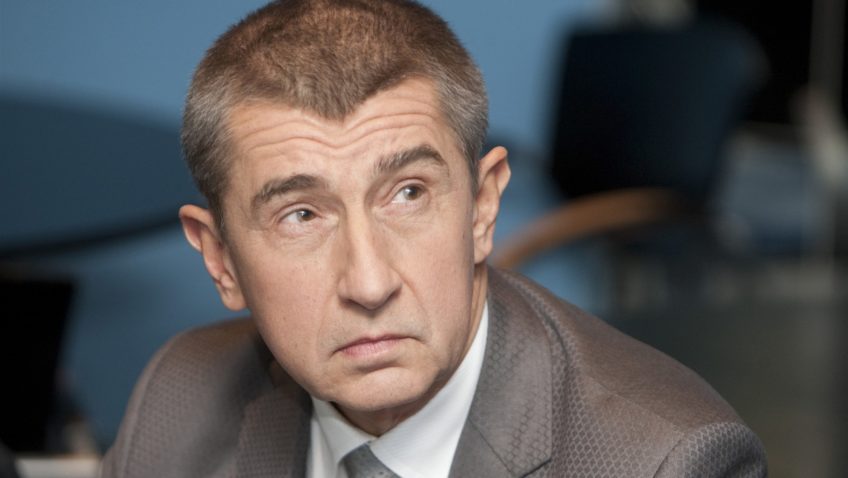Each week we bring you the ten most important pieces of news from Eastern Europe.
Compiled by: Hristo Voynov and Eva Jovanova
1. Both Macedonia and Kosovo are preparing for a second round of local elections. The governing Social Democrats (SDSM) in Macedonia already took more than half of the municipalities of the country, whereas VMRO-DPMNE, which was the most successful party at both local and parliamentary elections for eleven straight years, is now facing a fiasco, since it can only win 14 of the 81 municipalities in the country at best. The fate of 33 municipalities will be decided in a runoff this Sunday. In Kosovo, the results from the first round which took place on October 22 prompted a runoff in 17 municipalities.
2. The Moldovan president Igor Dodon has officially been suspended over his refusal to appoint Eugen Sturza as the Defense Minister. He denounced this move as illegitimate and declared that it will ultimately come back to hurt the country, as well as the politicians that backed the move. Exactly where this will lead Moldova to is unknown, though it appears that Dodon has lost any legitimate legal platform to lead. The closest elections are just over a year from now which presents a long period of time for Dodon to either build up a movement or accept his loss in the supreme court.
3. A monument in the form of arrow that will commemorate the late Prime Minister of Serbia Zoran Djindjic is set to be installed in the Serbian capital city Belgrade. The erection of the monument, however, has been stirring harsh criticism. Zoran Djindic was assassinated in 2003. He was one of the founders of the Democratic Party in Serbia which in 2000 helped bring the rule of Slobodan Milosevic down. Mr. Djindjic was a firm believer in a pro-European Serbia and thought that all generals charged with war crimes in the Yugoslav wars should face justice, which brought him unpopularity at home and led to his assassination.
4. The Polish Prime Minister Beata Szydło announced a government reshuffling in the coming days, though the details are still being worked out. Rumors surfaced that Szydło was to resign, or be fired, depending on who was speaking, in order to give her time to prepare for a run in European Parliament. This has been dismissed, though rumors are likely to continue spreading until the shuffle itself. Poland looking for a stronger voice in the EU organizations would be in the interests of Poland’s ruling party who are expecting a negative result in the upcoming Venice Commission probe, which they are already working to discredit.
5. This Thursday, Montenegro’s pro-Russian Democratic Front, an opposition political alliance, organized an anti-government rally to mark the two year anniversary of the greatest protests in Montenegro’s short history since its independence. In 2015 the demonstrators were camping for weeks, demanding early elections be scheduled and calling Prime Minister Milo Djukanovic to resign. This year’s protest urges that the government must not turn a blind eye to the police brutality of October 24, 2015 and start sentencing violent police officers.
6. The Czechia elections have given ANO, the populist party led by Andrej Babis, a clear lead with 29.6% of the vote and 78 seats in parliament. They still need 23 for a 101 seat majority, so they are now working to form a coalition. The only problem for ANO is that the Civic Democratic Party is the only party with enough votes and they are not interested in joining such a coalition. ANO will thus have to work with multiple parties, though it has plenty of possible coalition partners.
7. Turkey’s breaches of human rights have to stop, at least according to the European Union. The European Parliament finalized its decision to cut 80 million from the foreseen 217 million euros of the Instrument for Pre-accession Assistance (IPA) funds for Turkey. This money was nominally aimed at improving Turkey’s infrastructure and agriculture, as well as implementing political reform. More money will be cut if the government in Ankara does not change its course when it comes to the most important European values – human rights.
8.In the celebration of the 61st anniversary of Hungary’s 1956 anti-Soviet uprising, opposition politicians attacked PM Viktor Orban for corruption and government led repression of civil liberties. Orban used his speech to draw parallels to Soviet rule and EU rule, comparing his actions to the anti-Soviet freedom fighters. The US interim ambassador also drew attention to the government’s attacks on civil society, though this was attacked by the Hungarian government as US interference, supporting Orban’s claims of outside influence in Hungarian affairs.
9.The Ministry of Foreign Affairs of Albania, ranked 43 out of 210, which makes Albania the leader in digital diplomacy in the Western Balkans, according to the Digital Diplomacy Review for 2016. Behind it are Kosovo (71), Serbia (94), Macedonia (118), Bosnia and Herzegovina (141) and Montenegro (144). Yet, according to European Western Balkans, a much bigger challenge than eDiplomacy or Twiplomacy for the governments in the Western Balkans remains the transparency of institutions.
10. Hundreds of people attended a rally in Belarus against hazing in the armed forces and the controversial social parasite law. Though the protesters numbered only a couple hundred, the protests were still big considering Belarus’ tight control over opposition. The two issues were coupled into one protest in what appears to be an attempt to ‘patriotize’ the protest and keep the anti-government aspect of the social parasite law from dominating the narrative of the event.


0 comments